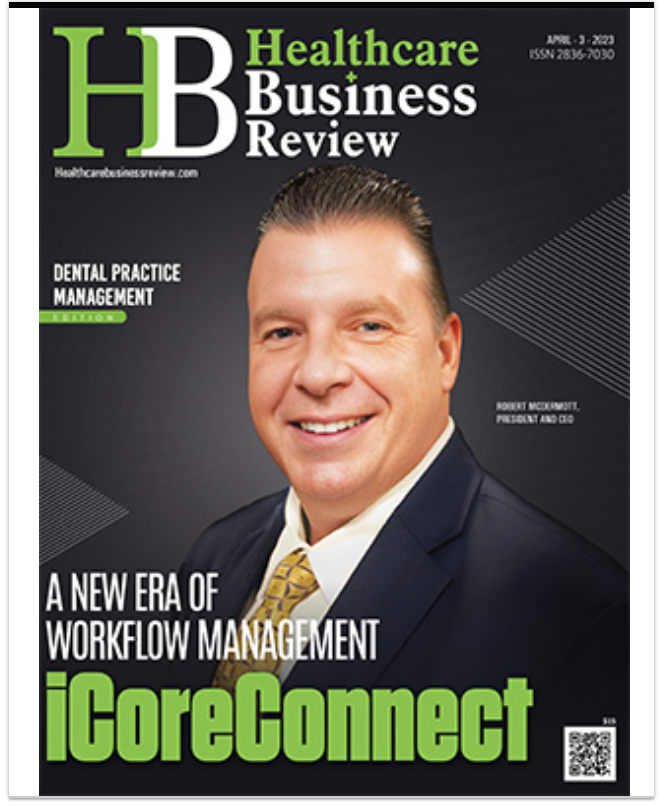Using Patient Education Videos to Support Preventive Care Strategies
As a healthcare provider, you know prevention saves lives. From routine screenings and lifestyle counseling to vaccinations and early detection,...
 When cloud based solutions started gaining traction, it was easy to see the Coud as “some place out there,” but that really misses the mark. Cloud based solutions aren’t about distant places, they’re about improving things where you are with unparalleled flexibility; they’re about being able to tailor solutions to meet your precise needs; they’re about being able to grow or shrink as needed, on demand; they’re about improving just about every aspect of your healthcare operation. From improved efficiency to enhanced HIPAA-compliant security, cloud based solutions may be off-site, but the on-site improvements are real and visible.
When cloud based solutions started gaining traction, it was easy to see the Coud as “some place out there,” but that really misses the mark. Cloud based solutions aren’t about distant places, they’re about improving things where you are with unparalleled flexibility; they’re about being able to tailor solutions to meet your precise needs; they’re about being able to grow or shrink as needed, on demand; they’re about improving just about every aspect of your healthcare operation. From improved efficiency to enhanced HIPAA-compliant security, cloud based solutions may be off-site, but the on-site improvements are real and visible.
Still, with so many solutions out there and much of it happening in the cloud, how can a practice possibly decide what solution is best? Understanding the benefits and how each provider can help fulfill those promises is a great place to start.
Quick Links
Cloud computing relies upon one or more high-security data centers to provide computer and computing resources to off-site computers, software, and organizations via the internet. More specifically, the resources needed to manage, access, retrieve, and secure data are off-site where management of the computing resources is handled by a third party. These are also often referred to as “hosted” services or managed services.
Years ago, cloud computing was seen as “risky” due to servers, and the data contained within, not being located at your office, often referred to as ‘on premise’. This loss of control raised security questions, but often cloud service providers have stricter and more robust security, both physical and the data contained within, than many businesses can afford. Further, cloud computing is often scalable in a way that on-premise servers are not. That means, for growing businesses and organizations, growth isn’t throttled by technology needs.
Further, cloud service providers often have the IT expertise and technicians who are beyond the reach of many businesses, both in terms of finding qualified people and the cost of adding to headcount and payroll. And now? Many of the services and software applications we use today, from our phones to our offices and even our smart home devices, rely on cloud computing.
 What is Cloud Computing for Healthcare?
What is Cloud Computing for Healthcare?In healthcare, cloud computing means healthcare providers and organizations are relying on remote servers accessed via the internet to store, manage, and process healthcare data and applications. With the arrival of electronic health records (EHR), many organizations made a digital transformation that required more IT support and hardware than many healthcare facilities were prepared for or able to manage. Cloud computing was able to help provide the resources needed to make those shifts while still providing the access and reliability healthcare organizations demand.
The last ten years have also heralded massive growth of Software as a Service (SaaS) applications in the healthcare space. These applications, from dental practice management software to automated insurance verification and ePrescribing software, leverage the flexibility and speed of the cloud to improve practice efficiency as well.
Whether large or small, dental and medical organizations can leverage significant benefits from the cloud. While digital transformation–often with the urging and storage requirements for EHR, electronic imaging, and other data–forced the hand of late adopters, there are more significant benefits than just the ability to scale for storage. While cloud computing is lauded for its flexibility and, with the right provider, reliability, it can do even more for healthcare organizations.
1. Cost savings
Cloud data storage for healthcare is more than just an electronic filing cabinet. As mentioned above, there are considerable costs to maintaining a HIPAA-compliant network. First, there are the hardware costs, including initial capital expenditures as well as repair and maintenance. As your organization grows, you’ll likely need to keep adding more hardware in order to maintain and improve existing services. Then, there are the costs of applications, security, and space. More specifically, on-premise servers require a lot of room–not just to allow physical space but also space to accommodate their cooling needs. Then, that physical space needs security features to ensure HIPAA compliance. And you’ll need an IT team capable of managing this network, monitoring for issues, and troubleshooting when necessary. Suddenly, an electronic filing cabinet got very big and expensive.
With a cloud service provider scaling and mitigating issues for you, the cost of securely storing your data is predictable.
2. Supports faster digital transformation
EHRs are just part of the digital picture when it comes to healthcare. With fully-supported infrastructure, healthcare providers can move into providing additional digital services which can make them more competitive and more profitable. For example, without a robust digital strategy for growth, healthcare providers can’t participate in the growth of telehealth in a post-pandemic world.
Further, research shows that even modest spending on IT, such as managed service providers who can keep costs down, can drive faster digital transformation.
3. Improves patient care and patient outcomes
Cloud applications make communication between patient and doctor, as well as various members of a patient’s care team, easier and faster. The improved communication and collaboration means that it’s easier for patients to get the care they need while caregivers can quickly and securely share vital patient data.
4. Scalability
For many practices, growth is a goal, but providing more services or increasing patient numbers also means growing other aspects of the business. Most medical offices and dental practices would prefer to make investments in additional staff to provide better services to a growing practice rather than investing in IT and yet, without an IT investment, growth isn’t possible. With a cloud services partner, growth can be pretty seamless. And, with IT in someone else’s hands, practices can invest valuable time where it’s most needed.
5. Improved SecurityCyberthreats are real, as is the need to remain HIPAA compliant. But most small practices can’t afford to hire a cybersecurity expert, let alone staff an IT team. Cybersecurity in healthcare can be a full-time job. But with the support of a cloud service provider, you can be sure that your hardware, software, and network infrastructure are protected, that all firewalls and virus softwares are updated and patched, and that someone is proactively monitoring your network for vulnerabilities and signs of potential attacks.
6. Disaster Recovery and Automated Backups
Not only are reliable backups required for HIPAA compliance but they’re an important part of disaster recovery and business continuity plans. When backups are part of a manual process, human error can result in either a missed backup or a failure to notice that the process didn’t complete successfully. Cloud services can backup your data automatically and alert the necessary support team members if part of the process fails. In short, you’re assured that, if and when you need it your data is available.
And if your data backup process means manually transporting a backup hard drive, imagine what happens if that drive is lost, damaged or stolen. Cloud backup mitigates all of that risk.
Given these benefits, more and more healthcare organizations, of all sizes, are moving to the cloud, but how do you choose the right cloud service provider and cloud based solutions?
 Finding the Right Cloud Based Solutions for Your Medical Office or Dental Practice
Finding the Right Cloud Based Solutions for Your Medical Office or Dental PracticeWith the cloud comes impressive flexibility (most applications can be used from anywhere at any time), but not all cloud services deliver at the same level. That’s why choosing the right cloud based solutions for your practice is vital. But how do you know what to look for? How do you know what you might be missing? Here are a few tips for finding the right cloud solutions for your medical office or dental practice.
1. Determine what you need and what your top priorities are
Priorities for your practice may be different than someone else’s. While everyone wants top-notch, HIPAA-compliant security–plus 99.99999% uptime reliability, easy scalability, and software that integrates seamlessly with existing software–not everyone has the same needs when it comes to access and flexibility. For example, iCoreRx, the ePrescribing solution from iCoreConnect, works on mobile devices as well as desktops and laptops, whereas other solutions may be restricted to desktop. If you’re a busy practice, with providers on the move, or even with multiple offices they travel between, that kind of flexibility is key.
2. Determine what level of service you need
Larger practices and healthcare systems may have their own IT teams to handle preventative maintenance, security monitoring and advice on the right tech moves to make for growth. Those organizations may be looking for software solutions that can improve efficiency and profitability. Or, perhaps they have a team to implement a security plan but lack the expertise to create one. In that case, iCoreHIPAA can help provide a HIPAA risk assessment including a detailed plan tailored to your organization’s needs.
And still, smaller organizations may not have that team and are looking for the managed services provided by iCoreIT, which can provide IT services like security, network and hardware maintenance and upgrades, and proactive monitoring to handle issues before they become problems.
Similarly, iCoreVerify, a cloud based automated insurance verification service for dental practices, which connects with over 2,100 insurers, can be supplemented with the iCoreVerify+ concierge service to assist your team with insurance verifications that require a human to step in.
Cloud based solutions can be as flexible as the cloud itself, it’s just a matter of determining what you need.
3. Consider what gaps you need to fill
Cloud based solutions are designed to improve efficiencies, so figuring out where your staff is taxed is a good place to start. What activities consume their time? Where could they be better utilized? What tasks can be automated? These are the first places you want to look for solutions. With the healthcare industry continuing to experience staffing shortages, the ideal solution for your practice can help fill those gaps and free up existing staff.
4. Consider industry experience and reputation
With the explosion of cloud based solutions, nearly everyone is providing software and service. However, not every cloud solution provider is the same. In fact, some specialize in specific industries and that industry knowledge can go a long way. From understanding application features and functionality and knowing precisely what tools will help to working closely with industry experts and associations. From those relationships, you can get a keen sense of a provider’s reputation and industry specific expertise.
For many practices, especially the small ones, knowing what other practices similar to yours are having success with can help you make informed decisions.
5. Book a demo
Short of giving the product a trial, a demo is the next best thing. If your staff is already overburdened with tasks, you don’t want to choose a cloud based solution that creates more work or overcomplicates processes. You’ll be able to see how the software can fit in with your existing clinical workflow and confirm it suits your needs. Quite a few solutions out there require additional add-ons to round out the functionality that other solutions have “out of the box.”
Similarly, a demo will help you see how the software will grow with you as well. You want solutions that not only meet your current needs but will see you through periods of growth and maintain their usefulness. Scalability is a critical feature.
Ideally, all the benefits of cloud based solutions, including flexibility, scalability, reliability, and security, are designed to improve efficiency and help you grow revenue. Your cloud based solution provider should be looking to build a partnership with you, growing alongside you, and continuously working with you and other users to improve their offerings. And yet, if the product doesn’t start where you need it to be, it’ll be a long road ahead. That’s why industry expertise matters.
If you’re ready to book a demo with a team that’s got experience and expertise in improving healthcare workflows with the aim of improving efficiency and realizing revenue, book a demo with the iCoreConnect team and let’s get started moving you forward.

As a healthcare provider, you know prevention saves lives. From routine screenings and lifestyle counseling to vaccinations and early detection,...

There’s no denying that the AI boom is here. The American Medical Association reports that 66% of physicians are currently using artificial...

If only managing your practice’s revenue cycle came with a crystal ball. You could spot claim denials before they happen, predict when patients might...

While it may be cliche, the adage “ Time is money” is one of the reasons why so many dental practices are looking at ways to increase efficiency....

Caring for your patients is the core reason you run your practice, and the desire to prioritize their experience is at the heart of patient-centered...

Healthcare Business Review features a profile of iCoreConnect President and CEO, Robert McDermott.